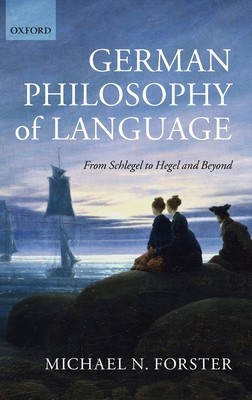
- We will send in 10–14 business days.
- Author: Michael N Forster
- Publisher: Oxford University Press, USA
- ISBN-10: 0199604819
- ISBN-13: 9780199604814
- Format: 15.5 x 23.4 x 2.8 cm, hardcover
- Language: English
- SAVE -10% with code: EXTRA
Reviews
Description
Michael Forster here presents a ground-breaking study of German philosophy of language in the nineteenth century (and beyond). His previous book, After Herder, showed that the eighteenth-century philosopher J.G. Herder played the fundamental role in founding modern philosophy of language, including new theories of interpretation ('hermeneutics') and translation, as well as in establishing such whole new disciplines concerned with language as anthropology and linguistics. This new volume reveals that Herder's ideas continued to have a profound impact on such important nineteenth-century thinkers as Friedrich Schlegel (the leading German Romantic), Wilhelm von Humboldt (a founder of linguistics), and G.W.F. Hegel (the leading German Idealist). Forster shows that the most valuable ideas about language in this tradition were continuous with Herder's, whereas deviations from the latter that occurred tended to be inferior. This book not only sets the historical record straight but also
champions the Herderian tradition for its philosophical depth and breadth.
EXTRA 10 % discount with code: EXTRA
The promotion ends in 9d.12:02:34
The discount code is valid when purchasing from 10 €. Discounts do not stack.
- Author: Michael N Forster
- Publisher: Oxford University Press, USA
- ISBN-10: 0199604819
- ISBN-13: 9780199604814
- Format: 15.5 x 23.4 x 2.8 cm, hardcover
- Language: English English
Michael Forster here presents a ground-breaking study of German philosophy of language in the nineteenth century (and beyond). His previous book, After Herder, showed that the eighteenth-century philosopher J.G. Herder played the fundamental role in founding modern philosophy of language, including new theories of interpretation ('hermeneutics') and translation, as well as in establishing such whole new disciplines concerned with language as anthropology and linguistics. This new volume reveals that Herder's ideas continued to have a profound impact on such important nineteenth-century thinkers as Friedrich Schlegel (the leading German Romantic), Wilhelm von Humboldt (a founder of linguistics), and G.W.F. Hegel (the leading German Idealist). Forster shows that the most valuable ideas about language in this tradition were continuous with Herder's, whereas deviations from the latter that occurred tended to be inferior. This book not only sets the historical record straight but also
champions the Herderian tradition for its philosophical depth and breadth.


Reviews